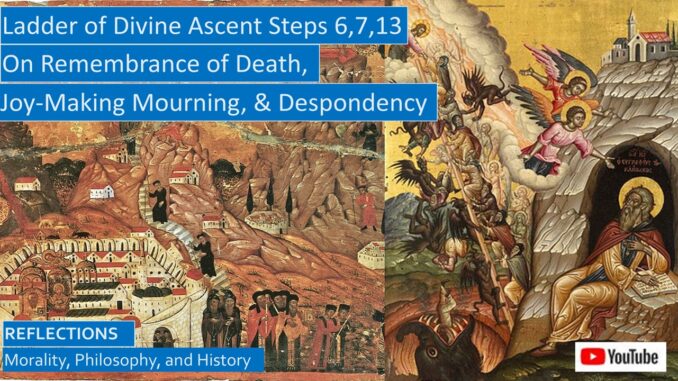
What can we learn as we reflect on climbing the rungs of the Ladder of Divine Ascent by St John Climacus on Remembrance of Death, Despondency, and Joy-Making Mourning?
Does living with remembrance of death mean that we should live life to the fullest, living a godly and virtuous life?
Why is despondency considered a capital sin?
What does St John Climacus mean by Joy-Making Mourning? How can mourning be joyous?
YouTube script, with Amazon book links:
https://www.slideshare.net/BruceStrom1/st-john-climacus-ladder-of-divine-ascent-remembrance-of-death-joy-making-mourning-and-despondency-steps-67-13
YouTube link for this blog: https://youtu.be/pFwC2nDf1CQ
For more interesting videos, please click to subscribe to our YouTube Channel:
https://www.youtube.com/@ReflectionsMPH/?sub_confirmation=1
St John Climacus wrote the Ladder of Divine Ascent as a handbook for monks living the monastic life in the Egyptian desert. For the first rung he has some advice for the layman who wishes to live the perfect life as best he can in the world, but the advice for his fellow monks must be allegorized to apply it to our lives as laymen.
https://youtu.be/Fco0W3bt5GA
This is followed by the second and third rung, detachment and exile,
https://youtu.be/qDtrgYmaAQU
then the fourth rung on obedience,
https://youtu.be/_bjQcNvzb-c
and the fifth rung on how we must persist in repentance.
https://youtu.be/NiuWNsy4x4Q
ON REMEMBRANCE OF DEATH
The sixth step of the Ladder of Divine Ascent begins with:
Step 6.1. “Every word is preceded by a thought. Remembrance of death and sins precedes weeping and mourning.” And deeds are preceded by thoughts and words.
St John Climacus continues:
Step 6.3. “Fear of death” “comes from disobedience, but trembling at death is a sign of unrepented sins.” Those who fear death the most are the disobedient who live only to party, who live for today, who live for themselves, and do not live for others, they are the unrepentant who tremble at death’s gates. Even “Christ fears death, but does not tremble,” so He can show us that he is both God and man.
Step 6.24. “It is impossible, someone says, impossible to spend the present day devoutly unless we regard it as the last of our whole life.”[1]
Father John Mack teaches us that “the remembrance of death is a sure and constant remembrance that I must die, that my death may come at any time, and that after death I must give an account for how I have lived this life, is a powerful incitement to godly living.”[2]
Father Vassilios says that the Church Fathers teach us “that repentance is the purpose of our death. Death brings repentance to an end. What follows death is the fulfillment and consummation of our relationship with God here and now. So, in Christian spirituality, the remembrance of death is, above all else, the remembrance of the Judgement.”
Father Vasilios continues, “When we remember death, life is put into perspective. We will not waste our time on things that are not ‘good and profitable for our souls,’” as is sung in the Divine Liturgy of St John Chrysostom. “That is why St John Climacus teaches us,
Step 6.24. No one who has acquired the remembrance of death will ever be able to sin.”[3]
ON DESPONDENCY
But St John Climacus not only bids to remember of our impending death; he also teaches that we should not be despondent, reminding us that:
Step 13.11. “Despondency is one of the eight capital vices, and moreover the gravest.”
What is despondency? Father John Mack teaches us that the Greek word means “listlessness or torpor. The best fitting English word is boredom, or perhaps distraction.”
St John Climacus offers a definition:
Step 13.2. “Despondency is a paralysis of soul, and enervation of the mind, neglect of asceticism, hatred of the vow made.” “It accuses God of be merciless and without love for men.” St John Climacus warns the monks that despondency causes them to doubt their calling, to “call those in the world blessed.” For those of us in the world, despondency will cause us to doubt the wisdom of seeking to live a godly life. Indeed,
Step 13.3. “An obedient man does not know despondency.”
Step13.4. “Community life is opposed to despondency,” so when you are down, call a friend, call someone who can encourage you! This is why God gives you friends.
Beware of despondency,
Step 13.10. “A courageous soul resurrects his dying mind, but despondency and sloth squander all his riches.”[4] So don’t spend all day in bed, get up and get going.
ON REMEMBRANCE OF DEATH
St John Climacus warns us:
Step 6.8. “Not every desire for death is good. Some, constantly sinning from force of habit, pray for death with humility. And some, who do not want to repent, invoke death out of despair. And some out of self-esteem consider themselves dispassionate, and for a while have no fear of death. And some, if such can now be found, through the action of the Holy Spirit, ask for their departure.”
Neither of our commentators suggest that this step could be referring to suicide. A hospital chaplain once told me that whenever his elderly patients talked about suicide, he immediately warned them that this would earn immediate damnation, because suicide is such a horrible thing for those who are left behind. But when someone does commit suicide, he would tell his surviving family that God is merciful, that those who commit suicide are often tormented by mental illness, that certainly we should believe and pray that the deceased would be granted a place in heaven through God’s grace.
As for me, I certainly do not seek death any time soon. We must also remind ourselves that these ancient teachings may be colored by the reality that the mortality rate in the ancient world was much higher than today, many died from fever in the millennia before aspirin was invented.
Ordinary Life and Justice in Ancient Athens, Rome, and Israel
https://youtu.be/vl8KGL5Yx2w
St John Climacus teaches us:
Step 6.4. “For those who are free from noise, the remembrance of death produces the putting aside of cares and constant prayer and guarding of the mind.” Do not worry, be carefree, trust in God. Your baggage may be heavy, but to Jesus it is light, you whose burdens are heavy and weary, Jesus will help you carry your baggage.
As St. John Climacus also teaches us:
Step 6.14. “Just as the Father lay down that perfect love is free from falls, so I for my part declare that a perfect sense of death is free from fear.”
We must remember that St John Climacus was writing advice for monks, not for laymen in the world, and certainly not for spouses and parents:
Step 6.22. “Do not wish to assure everyone in words of your love for them, but rather ask God to show them your love without words.”[5]
Certainly, you should reassure your children and your husband or wife explicitly that you love them, and often. But we should also follow St John Climacus’ advice that our love be sincere and pray to God that it is indeed sincere.
St John Climacus warns us to not listen to those who suggest that since God is tender-hearted, we need not to remember our death nor our coming judgment.
Step 6.10. “Never, when mourning for your sins, accept that cur which suggests to you that God is tender-hearted, as this thought is useful only when you see yourself being dragged down to deep despair. For the aim of the enemy is to thrust from you from your mourning and fearless fear.” Remember your death, and sin no more.
People don’t like to be reminded of their impending death. Many do not like visiting nursing homes, and those in nursing homes are nervous when the polite soft-spoken men with black suits with gloves come with gurneys. My parents were divorced for over twenty years, but never remarried. My dad would visit my mom after she retired from work due to declining health. But when she had to move to a nursing home, he visited her no more.
Try this: next time someone passes the time of day, asks you how you are doing, smile and respond:
“I am one day closer to death. And how are you doing this fine day, my friend?”
I once responded this way to a grocery clerk, and she was visibly puzzled, as her English was not too good. So, I said, “Soy un otro dia acerca de muerto!” which left her just horrified.
If this prompts conversation, then we can say this may be our last day on the face of this earth, we should live this day well with virtue.
We must not be like the rich man in the parable in Luke: “The land of a rich man brought forth plentifully; and he thought to himself, ‘What shall I do, for I have nowhere to store my crops?’ And he said, ‘I will do this: I will pull down my barns and build larger ones; and there I will store all my grain and my goods. And I will say to my soul, Soul, you have ample goods laid up for many years; take your ease, eat, drink, be merry.’ But God said to him, ‘Fool! This night your soul is required of you; and the things you have prepared, whose will they be?’ So is he who lays up treasure for himself and is not rich toward God.”[6]
ON JOY-MAKING MOURNING
Psalm 126 sings, “May those who sow in tears reap with shouts of joy.”[7] If all we seek is healing and happiness, are we seeking what we can get out of life and relationships, rather than what we can give to our neighbor? If we seek rather to Love God and to love our neighbors as ourselves, then maybe we will find joy and happiness without looking for them.
That is what the title of this chapter of the Ladder of Divine Ascent is telling us, that we can find joy through mourning. This idea that we should seek to mourn is incredibly foreign to our modern culture. Why, seeking to mourn is denying a positive mental attitude! But we would shed the burden of being bright and perky every day, to just bounce back from adversity.
Why should we seek joy making mourning? For discipline, the discipline of living the godly life. Pray ceaselessly, pray for repentance, pray for the sins of our neighbors, pray that we may Love God with all of our heart and with all of our soul and with all of our all.
To better understand joy making mourning, let us ponder the order of the steps. We must first learn and practice obedience to our parents and priest and those in authority. Once we are accustomed to the discipline of obedience, we are ready for the discipline of repentance, for in repentance we are obedient to God by changing how we lead our life. We remember our death, and then we mourn, and in the following chapters we will free ourselves from anger and remembering those who sinned against us.
Of all the steps so far in the Ladder of Divine Ascent, I must admit I had the most trouble really understanding the step of joy making mourning. If we mourn, so our culture instructs us, we are not positive, and there is no greater sin in our culture than to mourn, to be morose, to stare into the abyss.
St John Climacus teaches us,
Step 7.10. “Do not cease to picture and scrutinize the dark abyss of the eternal fire, and the merciless servants, the uncompassionate and inexorable judge, the bottomless pit of subterranean flame, the narrow descents to the awful underground chambers and yawning gulfs, and all such things, so that the sensuality in our soul may be checked by great terror and give place to incorruptible chastity, and itself receive the shining of the immaterial Light which radiates more than any fire.”
When we suffer a great loss, we must allow ourselves to mourn. When our neighbor suffers a great loss, we must allow ourselves to mourn with them, to comfort them in their loss. When we suffer loss from our sinfulness, we must mourn our sinfulness, and that of our neighbors, so we can come to true repentance.
Like the opening verses of Psalm 41:
“As a hart (or deer) longs for springs of waters,
So my soul longs for thee, O God.
My soul thirsts for God,
for the living God;
When shall I come and behold the face of God?”[8]
St John Climacus’ chapter on joy making mourning starts with great longing:
Step 7.1. “Mourning according to God is sadness of soul and the disposition of a sorrowing heart, which ever madly seeks that for which it thirsts; and when it fails in its quest, it painfully pursues it, and follows in its wake grievously lamenting.”
St John Climacus refers to compunction, which is defined in the editor’s glossary in the first volume of the Philokalia:
Compunction can be “translated as deep penitence,” which is “the state of one who is ‘pricked to the heart,’ becoming conscious both of his own sinfulness and of the forgiveness extended to him by God; a mingled feeling of sorrow, tenderness and joy, springing from sincere repentance.”[9]
St John Climacus teaches us:
Step 7.27. “Genuine compunction is undistracted pain of soul, in which it gives itself no relief but hourly imagines only its dissolution; and it awaits, like cool water, the comfort of God who comforts humble monks.”
Step 7.40. “He who is clothed in blessed and grace-filled mourning as in a wedding garment knows the spiritual laughter of the soul.”
This seventh step of the Ladder of Divine Ascent reminds us of David’s great penitential Psalm 51, when he repents of his affair with Bathsheba, where he broke the commandment of the Decalogue. David awaits the cool water of God to:
“Wash me thoroughly from my lawlessness
And cleanse me from my sin.”
As in the Ladder of Divine Ascent,
Step 7.7. My “groanings and sorrow cry to the Lord.”
David groans to the Lord:
“Against you only have I sinned
And done that which is evil in your sight;
So you are justified in your sentence,
And blameless in your judgement.”
All sins committed against our neighbor are sins committed against God. David’s sins were great and numerous, committed against many, involving indeed the entire nation of Israel, and his mourning and compunction are great.
St John Climacus teaches us:
Step 7.28. “Those who have obtained mourning in the depth of their being hate their own life as something painful and wearisome, and a cause of tears and sufferings.”
In the depths of his soul David despises his birth:
“Behold, I was brought forth in iniquity,
And in sin did my mother conceive me.”
Fear of God is the beginning of wisdom, and St John Climacus teaches us that:
Step 7.55. “The abyss of mourning has seen comfort, and purity of heart has received illumination.”
David in his depths of despair is comforted, even illumined, and by repenting of darkness moves into the light of God’s illumination and truth:
“Behold, you desire truth in the inward being;
Therefore teach me wisdom in my secret heart.”
Our mourning and tears are a baptism that washes away the evil in our lives, as St John Climacus teaches us:
Step 7.6. “Greater than baptism itself is the fountain of tears after baptism.” “Baptism is the washing away of evils that were is us before, but sins committed after baptism are washed away by tears.”
Of such a baptism David sings:
“Purge me with hyssop, and I shall be clean;
Wash me, and I shall be whiter than snow.”
After seven couplets of mourning there is an uplift to this Psalm, as is the case with most of the Psalms, but in a most poignant way:
“Fill me with joy and gladness;
Let the bones which you have broken rejoice.”
And why does David express joy and gladness and rejoice?
Because he has repented, he asks God for forgiveness:
“Turn your face from my sins,
And blot out all my transgressions.”
In the Ladder of Divine Ascent, we mourn out of Love of God, so he will blot out all our sins:
Step 7.45. “My friends, God does not ask or desire that man should mourn from sorrow of heart, but rather that, out of love for Him, he should rejoice with spiritual laughter. Remove the sin, and the tear of sorrow is superfluous for your eyes.”
Most Psalms of mourning have the uplift in the last verse or two, but in this great Psalm of repentance the uplift is like a ladder of many rungs. The Psalm starts with many stanzas of mourning and compunction. Repentance is not a quick prayerful request, but a changed attitude of mourning of sinfulness, an attitude, a habit:
Step 7.9. “Keep a firm hold of the blessed gladdening sorrow of holy compunction, and do not stop working at it until it raises you high above the things of this world and presents you pure to Christ.”
This we hear in the poetry of David:
“Create in me a clean heart, O God,
And renew a right spirit within me.
Do not cast me away from Your presence,
And do not take Your Holy Spirit from me.”
Through mourning we make room for God in our hearts. When we make room for God, He brings joy to our hearts:
Step 7.49. “When I consider the actual nature of compunction, I am amazed at how that which is called mourning and grief should contain joy and gladness within it, like honey in the comb.”
So, David lifts his head and sings:
“Restore to me the joy of Your salvation,
And uphold me with Your guiding spirit.
I will teach transgressors Your ways,
And the ungodly shall turn back to You.”
What does mourning madly seek? David’s mourning soul asks God to:
“Deliver me from bloodguiltiness, O God,
God of my salvation,
And my tongue shall sing aloud of thy deliverance.
O Lord, open my lips,
And my mouth shall show forth your praise.”
St John Climacus teaches us that God gladdens the heart of those who repent:
Step 7.61. “Righteous and holy is the Lord, who by His word pricks with compunction the man who dwells in stillness intelligently; and He daily gladdens the man who is obedient intelligently.”
David sings to God that:
“You have no delight in sacrifice;
Were I to give a burnt offering, You would not be pleased.
The sacrifice acceptable to God is a broken spirit;
a broken and contrite heart, O God, You will not despise.”
St John Climacus confirms this:
Step 7.64. “However great the life we lead may be, we may count it stale and spurious, if we have not acquired a contrite heart.”
The Psalm ends in a comforting tone. When our hearts are right before God, then He will accept our sacrifices:
“Do good to Zion in Your good pleasure,
Rebuild the walls of Jerusalem,
Then You will delight in right sacrifices,
In burnt offerings and whole burnt offerings;
Then bulls will be offered on Your altar.”
Is the story of the sin of David and Bathsheba and example of joy-making morning? In many classical painting of Bathsheba bathing on her roof, you can barely see David peering over the parapet on his roof. There is a command in the Torah to always build a parapet on the roof, so nobody rolls off when they are sleeping on the roof at night to escape the desert heat. The allegorical meaning is we should build a parapet in our hearts, so we guard against envy, as that is the gateway sin to all other sins. The literal meaning is that David, without a parapet, would surely fall off his roof as he leaned forward to get a better look at Bathsheba’s bath.
Perhaps this story is an example of joy-making mourning. Not only was this episode a great personal sin of David; it also led to a split in his kingdom as many were resentful of Bathsheba’s son Solomon, who was chosen to inherit the throne, though he had older brothers. Perhaps this was the reason why God ordained that the first son born to David and Bathsheba should not survive his infancy, a great sadness for David. Also, the Bathsheba incident marks the beginning of the long decline of the Jewish monarchy.
Though he sinned greatly, David also sincerely repented, and was able to rejoice because he was forgiven. This is also joyful news for us, for if God can forgive David this great sin, and even promise that Jesus Christ will be born in his lineage after he commits this great sin, what sin of ours will God not forgive? Perhaps that is one meaning of joy-making mourning.
As St John Climacus teaches us:
Step 7.4. “A characteristic of those who are still progressing in blessed mourning is temperance and silence of the lips; and of those who have made progress, showing freedom from anger and patient endurance of injuries; and of the perfect, with humility, thirst for dishonors, voluntary craving for involuntary afflictions, non-condemnation of sinners, compassion even beyond one’s strength. The first are acceptable, the second laudable; but blessed are those who hunger for hardship and thirst for dishonor, for” their hunger will be satisfied.
St John Climacus warns us:
Step 7.68. “Our enemies are so wicked that they turn even the mothers of virtue into the mothers of vices, and those things which make for humility, they make into a cause for pride.”
What is important in the spiritual life? St John Climacus teaches us:
Step 7.70. “When our soul leaves this world, we shall not be blamed for not having worked miracles, or for not having been theologians, or not having been rapt in divine visions. But we shall certainly have to give an account to God of why we have not unceasingly mourned.”[10]
What is next after joy making mourning? In the next chapter we are told:
Step 8.1. “As the gradual pouring of water on a fire completely extinguishes the flame, so the tears of true mourning are able to quench every flame of anger and irritability.”[11]
Next are steps ten, eleven, and twelve, On Slander, On Talkativeness, and On Lying.
DISCUSSING THE SOURCES
Both of these editions of the Ladder of Divine Ascent use the same translation, but each has its own thoughtful introductions, the introduction in the Classics of Western Spirituality is by Bishop Kallistos Ware. We find this work as easy to read as the works of the Stoic Philosophers that influenced Christianity and the monastic tradition, but we also have the commentaries by Father John Mack and Father Vassilios Papavassiliou, which are valuable because they reflect their experience as priests hearing confessions.
We further discuss our sources plus provide historical background information in our first video on the Ladder of Divine Ascent.
[1] St John Climacus, Ladder of Divine Ascent (Boston: Holy Transfiguration Monastery, 1991, originally written 1100’s, translated by Colm Luibheid and Norman Russell), Step 6, pp. 66 and 69.
[2] Father John Mack, Ascending the Heights, Laymen’s Guide to the Ladder of Divine Ascent (Ben Lamond, California: Conciliar Press, 1999), Step 6, p. 32.
[3] Father Vassilios Papavassiliou, Thirty Steps to Heaven, The Ladder of Divine Ascent for All Walks of Life (Chesterton, Indiana: Ancient Faith Publishing, 2103), Step 6, pp. 52-55.
[4] St John Climacus, Ladder of Divine Ascent, Step 13, pp. 95-97, and Father John Mack, Ascending the Heights, Laymen’s Guide to the Ladder of Divine Ascent, Step 13, p. 71.
[5] St John Climacus, Ladder of Divine Ascent, Step 6, pp. 66-70.
[6] https://www.biblegateway.com/passage/?search=luke+12%3A16-21&version=RSVCE
[7] https://www.biblegateway.com/passage/?search=psalm+126%3A5&version=RSVCE
[8] https://www.biblegateway.com/passage/?search=psalm+42%3A1-2&version=RSVCE
[9] Editors’ glossary, Philokalia, The Complete Text, compiled by St Nikodimos of the Holy Mountain and St Makarios of Corinth, Vol. 1, translated and edited by GEH Palmer, Phillip Sherrard, and Kallistos Ware (London: Faber and Faber, 1979), pp. 73-74.
[10] St John Climacus, Ladder of Divine Ascent, Step 7, p. 358, and https://www.biblegateway.com/passage/?search=psalm+51&version=RSVCE .
[11] St John Climacus, Ladder of Divine Ascent, Step 8, p. 81.

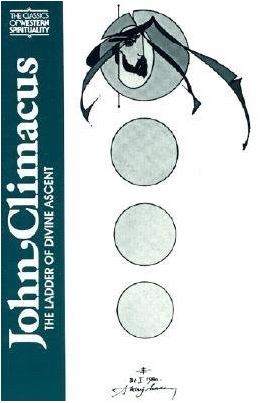

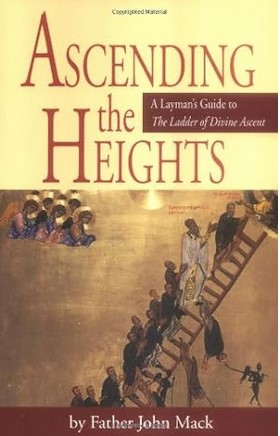
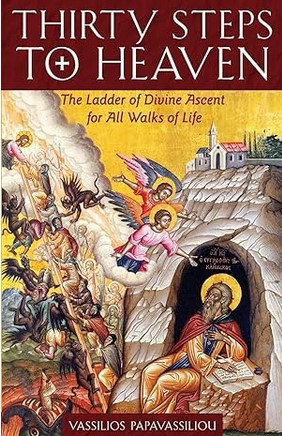
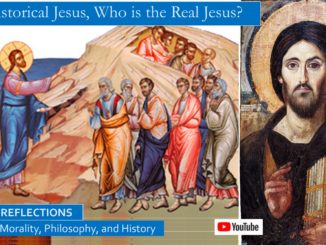
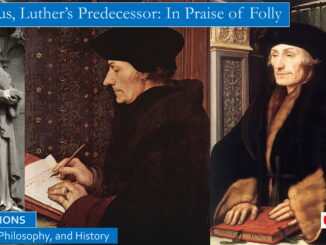
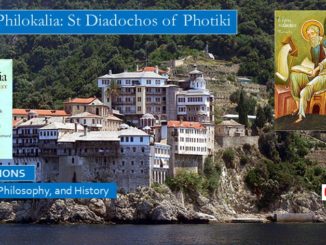
1 Trackback / Pingback